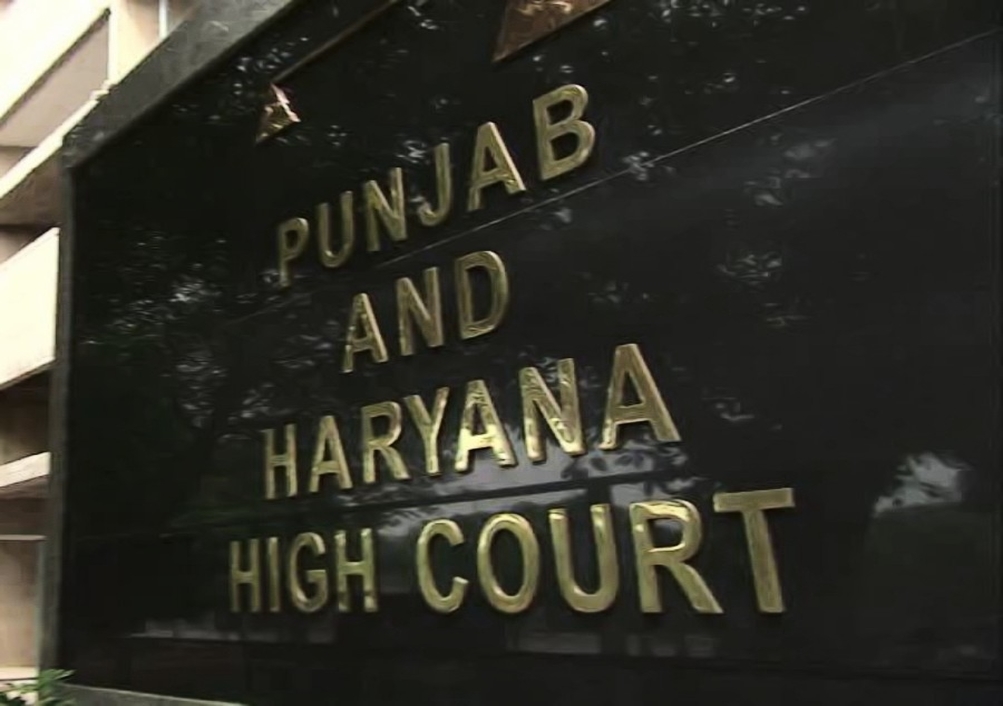In CR No.1307 of 2022- PUNJ HC- Revision petition instituted on ground of non-affixation of proper court-fee on plaint is not maintainable: P&H HC Justice Meenakshi I. Mehta [16-05-2022]

Read Order: Rama Rani and Another v. Isha Rani
Monika Rahar
Chandigarh, May 17, 2022: While dealing with a revision petition moved by the petitioners-defendants assailing Trial Court’s order dismissing their application seeking rejection of the plaintiff’s plaint on the ground of non-affixation of proper Court fee, the Punjab and Haryana High Court has held that so far as the ground of non-affixation of proper court-fee on the plaint is concerned, the present revision is not maintainable on this score.
In this regard, the Bench of Justice Meenakshi I. Mehta made reference to the judgment of the Top Court in Sri Rathnavarmaraja Versus Smt. Vimla, 1961 AIR (Supreme Court) 1299 wherein it was held that the question of affixation/payment of the Court fee is between the plaintiff and the State and the defendant had no right to move the superior Courts by way of appeal or revision petition in the eventuality of the said question having been decided against him.
Feeling aggrieved by the order of the Trial Court dismissing the application moved by the petitioners-defendants (‘the defendants’) under Order 7 Rule 11 CPC for seeking rejection of the plaint in the Civil Suit filed by the respondent-plaintiff (‘the plaintiff’) against them (defendants) for seeking a decree for mandatory injunction, the present revision petition was filed.
Essentially, in this case (as contended by the defendants’ counsel), the plaintiff filed a civil suit for claiming her ownership of over half a share in each of the suit properties but she did not affix the proper court fee on the plaint. It was further the Counsel’s claim that it was the plaintiff’s own case that her husband purchased one of the suit properties in the name of the second defendant (his brother) while pledging her gold ornaments with the Bank and he purchased the other suit property in the name of the first defendant (his mother) out of affection and respect for her and thus, making both the above-mentioned sale transactions as ‘Benami’.
Thus, the Counsel for the defendants’ claimed that the suit for claiming ownership was barred under the Benami Transactions (Prohibition) Act, 1988 (‘the Act of 1988’) thus, the plaint was liable to be rejected but vide the impugned order. Therefore, the Counsel submitted that the decision of the Trial Court was not legally sustainable. To buttress his contentions, he placed reliance upon the observations made in Anand Kumar Versus Vijay Kumar and others and in Lalsa Prasad Singh Versus Chanderwala and another.
The Court, at the very outset, held that the afore-raised contentions were devoid of any merit because so far as the ground of non-affixation of proper court fee on the plaint is concerned, the present revision is not maintainable on this score.
As regards the contention qua the suit being barred under the provisions of the Act of 1988, the Court made a mention to the judgment of the Supreme Court in Pawan Kumar Versus Babulal Since Deceased through LRs and others, wherein it was held that where the plaintiff claimed that the property in question was purchased by his money in the name of his father, the question whether the plea raised by the plaintiff was barred under Section 4 of the Act of 1988 or not, could not have been the subject matter for assessment at the stage when the application under Order 7 Rule 11 CPC was taken up for consideration and the matter required fuller and final consideration after the evidence was led by the parties.
In view of the above-discussed verdict, the Court was of the opinion that the observations made in Anand Kumar’s case (supra) and Lalsa Prasad Singh’s case (supra) would be of no avail to the defendants.
As a sequel to the fore-going discussion, the Court held that the impugned order did not suffer from any illegality, infirmity, irregularity or perversity so as to warrant any interference by the Court. Resultantly, the revision petition in hand was dismissed.
Sign up for our weekly newsletter to stay up to date on our product, events featured blog, special offer and all of the exciting things that take place here at Legitquest.




Add a Comment